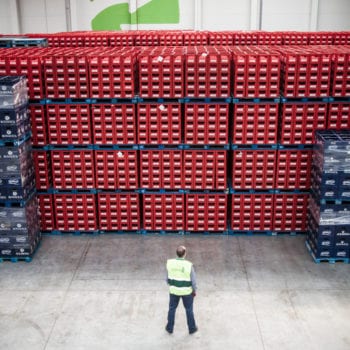Coca-Cola European Partners signs contract with CHEP for the use of circular packaging services
9 February 2021
CHEP, the supply chain solutions company, has signed a five-year contract with Coca-Cola European Partners (CCEP) to supply pooled pallets across Western Europe.
CHEP’s business model, which is based on circular economy principles, consists of sharing and reusing packaging by manufacturers and retailers throughout the supply chain.
CCEP has been working with CHEP for a number of years. Every year, the use of CHEP pallets by CCEP prevents the felling of more than 10,800 trees and avoids the generation of approximately 1,340 tonnes of waste which is comparable to the waste generated by 2,700 European citizens in twelve months.
Lee McCann, CCEP associate director, procurement, category lead warehousing, pallets & repack, said: “We want to grow our business in a responsible and sustainable way. We are working to make the packaging we use part of the circular economy. For us, therefore, circularity was a key factor when choosing our pallet supplier. CHEP offers us a sustainable, circular solution which can be adapted to our needs.”
“CHEP is also supporting a key commitment of our ambition to reach Net Zero by 2040 aligned to a 1.5-degree pathway. As over 90% of our greenhouse gas emissions occur in our supply chain, we are asking all strategic suppliers to set their own science-based target and use renewable electricity by 2023. It is great to see how far CHEP is already advanced on this journey having also recently published their ambition for a 1.5-degree (or 1.5ºC) future.”
David Cuenca, president, CHEP Europe, said: “Like our partnerships with Coca-Cola bottlers in other global markets that we serve, with CCEP we have developed strong trust and support to enable growth and future competitiveness, in addition to sustainability benefits.”
“We strive to build and maintain long-term relationships with our customers through collaborative projects to improve their supply chains, reduce overall supply-chain costs and provide operational efficiencies.”




 Print
Print



Fans 0
Followers